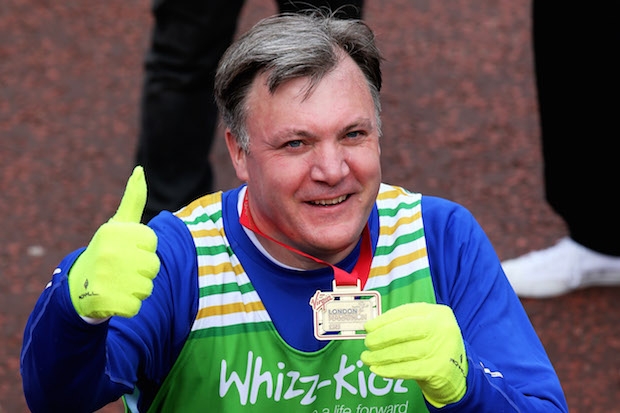Ed Balls has announced today that he’d scrap even the tiny tax break that George Osborne is planning to offer next year, thus drawing another dividing line with the Tories. Cameron’s proposed tax relief is not about promoting marriage, or favouring any lifestyle over another. He wants to make the government more marriage-neutral. That means eroding the bias against marriage, which is one of the most pernicious poverty traps in the British today.
When I was writing for the News of the World, I was contacted by a reader who said that he loved his family, but had concluded they’d be (financially) a lot better off without him. He sent the calculations, and they were all correct. His decision to marry the mother of his children had left them significantly worse-off than they would be if she was a single mother (ie, married to the state) with her housing costs paid, on top of other benefits. It was a heartbreaking case, and an example of the damage that wrong-headed government policy can unwittingly inflict on family life for the low-paid. This is what the Labour never quite grasped: a marriage tax break is not about bribing anyone down the aisle. It’s about going a bit easier on lower-income couples who want to bring up their children inside a marriage.
In decades of welfare advances, nothing has replicated the power of the family. It’s the first, best and cheapest source of health, wealth and education. Balls may calculate that marriage is more popular with the rich than the poor, so a marriage tax break may be a sop to the middle classes. But part of the reason is that, for those on the breadline, the system is stacked against married couples. It incentivises mothers to pretend that they’re single. The below graph shows one inequality that very few care about: the inequality of access to two parents:-
To look at the above graph is to understand a bit more about why Britain is one of the least equal countries in the world. The advantages of a two-parent family tend to be conferred on the better-off. The welfare state has, for far to many low-paid families, robbed marriage of its economic function. And, in effect, applied a heavy tax on those who do get hitched.
David Cameron is more pro-marriage than George Osborne, who is more metropolitan in his outlook and worried about moralising. The family agenda (of which pro-marriage tax reform is a small part) is deeply unfashionable. It’s true that, in today’s Britain, a 15-year-old boy is more likely to have a mobile phone in his pocket than a father in the house. But should we worry? Tony Blair argued in 1995 that “a strong society cannot be morally neutral about the family” but that was then: don’t expect to see any Labour frontbencher repeat that line soon.
But there are signs that the pro-family changes that he has made are having an effect. Some figures came out yesterday which show that 250,000 more children were living with both their birth parents in 2012 compared with 2011. The increase is most pronounced amongst children in low income households.
And this is on just a few initiatives: the Troubled Families Programme, the Separated Families Initiative and £30 million sent to relationship support for couples who choose it. Free parenting classes are being piloted in Middlesbrough, Derbyshire and Camden, with an estimated 50,000 parents using the service. Labour may sniff at all this, but there is a demand for support amongst low-income parents who need the help. Letting married couples keep a little more of the money they earn is also help – help that Ed Balls doesn’t want to give.
Dividing lines are being drawn all the time: on Europe earlier this week, and now on social justice. Labour may turn up its nose at marriage – but the Conservatives are there offering help, to those who want to take it. Balls has drawn a dividing line over social justice, and Cameron can be proud to be on the right side of it.







Comments